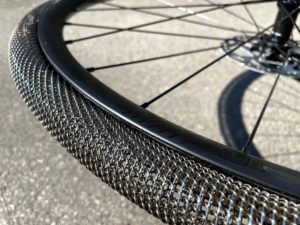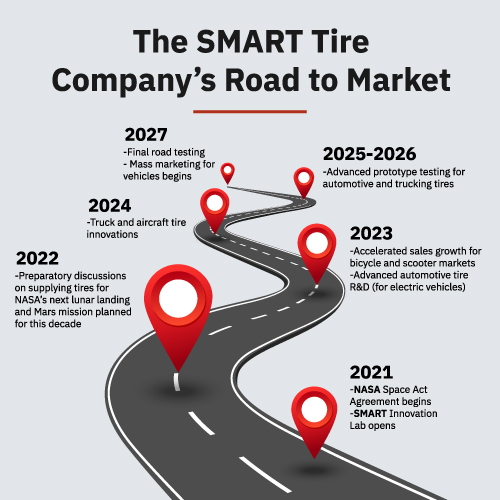Startup disruptions are like earthquakes. The bigger the earthquake, the more widespread its impact. Likewise, major disruptions can upend entire industries. Major earthquakes can topple buildings. And big disruptions can expose the vulnerabilities of powerful legacy companies, diminishing their ability to compete.
Airbnb disrupted the global hospitality market. Uber disrupted the global taxi business. Amazon disrupted retail. All huge disruptions. We’ve seen it time and again: The bigger the disruption, the bigger the upside of the company doing the disrupting.
So if that’s the case, why do many investors shy away from these supersized disruption plays?
For one thing, they’re often hard to imagine in the beginning. Jumping into privately owned cars for a ride? Staying in a stranger’s home for a weekend? Buying stuff while sipping coffee at the kitchen table? Are you out of your mind?
Moreover, investors intuitively understand that the bigger the disruption, the longer it takes to establish itself. They stay away because they don’t want to wait five to 10 years for their investment to succeed.
And lastly, some investors can’t stomach the risk. Upending industries, replacing beloved products, changing decades-long consumer behavior… None of this is easy. The journey these companies take is fraught with difficulty.
Investors have every right to be concerned about risk. But, as startup investors, we simply can’t write risk out of the equation. So the two key questions you must answer are…
- Does the upside make the risk worth taking on?
- What are the factors that could mitigate risk?
As for the first question, I’ll say it once again. Huge disruptions beget huge upside. And is there any disruption bigger than disrupting the wheel?
Wheels have been around for millennia. Air-filled wheels have been around since the 19th century. We’ve since switched from natural rubber to synthetic rubber. Otherwise, the wheel hasn’t changed that much in the last couple hundred years.
But the age of the pneumatic air-filled rubber wheel is about to end.
And it’s our good fortune that the company with the only viable technology to lead the transition to a new kind of wheel is from the U.S… has an affordable valuation… is looking for capital right now… and has decided to accept funds from retail investors (as opposed to venture capital firms).
The company I’m talking about is The SMART Tire Company. SMART stands for Shape Memory Alloy Radial Technology. The SMART Tire Company’s core technology is licensed from NASA, which developed this technology for its future Mars missions. NASA plans to return to Mars and also the moon later this decade.
Demand for this technology is increasing. Bidding to provide wheels for these space missions is scheduled to take place later this year. Expect Goodyear, Michelin and other major tire companies to bid — and lose. They don’t have the requisite technology. The SMART Tire Company does. And, yes, sometimes things are that simple.
These airless super-elastic tires have several advantages. They support huge weights, far beyond the capabilities of air-filled tires. Say goodbye to 18-wheelers and hello to 10-wheelers using SMART tires. They’re never flat. It’s a perfect fit for self-driving cars. Think about it. An autonomous ride is useless with a flat tire. SMART Tires are long-lasting and eco-friendly. They’ll last as long as your car or bike. And they increase fuel efficiency.

They’re coming. It’s no longer a matter of if but when. Space is the future. And it’s fast becoming big business. As the market searches for the best solutions and services, the rewards are also becoming much greater. SMART Tire Company CTO Brian Yennie says there’s no reason why the company can’t be the tire platform for everything extraterrestrial.
He’s not worried about the other tire manufacturers. Their non-pneumatic tires all share Michelin’s flawed honeycomb structure. The technology is deficient. None have caught on for terrestrial use — and none will work for extraterrestrial use. These tires are made with rubber. That’s a non-starter for the moon, where temperatures range from 260 degrees to -387 degrees fahrenheit. At either extreme, the rubber will disintegrate.
Earthbound and beyond, The SMART Tire Company sees ample opportunity. The upside certainly looms large. But, getting back to our second key question, there are also factors that could potentially amplify or mitigate risk. To unleash the full upside of its technology, The SMART Tire Company will have to address these three major risks. I call them “The three C’s.”
- Costs. The SMART Tire Company’s tires are made from a remarkable metal — nickel titanium. It’s a shape memory alloy. No matter how you stretch or bend it, it will always snap back to its original shape. But it’s also expensive and one of the big reasons why SMART tires cost so much. So this is the good news. Over the past year, the company says it has reduced its material costs (for its bike tire) from $600 to less than $100. It hopes to sell its bike tires for around $150 when they go on the market by the end of this year or early next year. Similar cost savings can also be expected for its other tires from automotive to aerospace use. And as production volume goes up over time, costs should go down even more. Cost risks are rapidly fading into the background.
- Complicated regulations. Even as its tires for autos and trucks become increasingly cost-competitive, The SMART Tire Company will have to satisfy the Department of Transportation’s safety regulations. The company expects it’ll take around two years to jump through all of the government’s regulatory hoops. Commercializing its vehicle tires is still about five years away. As a risk factor, we’re talking more time and money to get clearance. The safety-related capabilities of the tires (like braking) are expected to fully meet DOT safety standards. The risk here is quite manageable.
- Competition. It’s a mixed bag. An absence of serious competition has obvious benefits. But users like to have options. For the sector to truly take off, it will need other tire companies to step up at some point. For better or for worse, it’s not going to happen anytime soon. No major tire companies use shape memory metal alloys in their non-pneumatic tires. They make most of their money from replacing tires. None of them seem eager to switch to a renewable model. It’s not the worst thing that The SMART Tire Company has the market to itself. But hopefully that will change over time.
The risks seem manageable. Notice that I have not included technology risk. I believe the company is beyond that, which is different from saying the company has finalized its products (or main product). It has not. More product iterations await. There will be tweaks and improvements made to the tires. But the main question — do they work? — is off the table.
So this is how the next five years should play out. The SMART Tire Company will begin its revenue generation by offering high-end/high-performance tires for bikes and e-bikes, scooters and mopeds. Around 4,300 customers have signed up to get these tires. Then it will offer its tires for the NASA moon and Mars missions. After that, it will focus on tires for vehicles, targeting trucks and electric cars.

And somewhere along this timeline the Department of Defense is expected to show serious interest in making a deal with The SMART Tire Company. Tires that never go flat have an obvious appeal to the DOD.
The SMART Tire Company team is more than capable. CEO Earl Cole has a lot of experience, including at Honda, Sony and Google. Yennie comes from a computer science background and has acquired experience in manufacturing, among other areas. And lead engineer Jim Benzing worked at Goodyear for 43 years, including on non-pneumatic tire development. He’s a widely respected innovator and tire inventor. The SMART Tire Company did well to bring him on board.
The SMART Tire Company is an example of why startup investing is so fascinating. It’s the only space where we can watch very small companies solve very big problems in ways that elude their much bigger, deeper pocketed (but less resourceful) peers. Nobody has heard of The SMART Tire Company yet. But they will.
Deal Details
Startup: The SMART Tire Company
Security type: Preferred stock
Offering Maximum: $3.7 million
Valuation: $50 million
Price per share: $4.60
Minimum investment: $243.80
Where to invest: StartEngine
Deadline: April 29, 2022
How to Invest
The SMART Tire Company is raising up to $3.7 million on StartEngine. If you don’t already have a StartEngine account, you can sign up for one here. Once you’re logged in to StartEngine, go to The SMART Tire Company deal page. Then click the green “Invest Now” button. Enter the amount you want to invest, starting as low as $243.80, and proceed through the required steps. Be sure your investment is confirmed, then you’re good to go.
Risks
This opportunity, like all early-stage investments, is risky. Early-stage investments often fail. The SMART Tire Company might need to raise another round of funding in a year or two, if not sooner. If it executes well, this shouldn’t be a problem. But that’s a risk worth considering when investing in early-stage companies.
The investment you’re making is NOT liquid. Expect to hold your position for five to 10 years. An earlier exit is always possible but should not be expected.
All that said, I believe The SMART Tire Company offers an attractive risk-reward ratio.